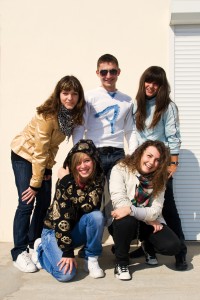 Okay parents- the long awaited day has arrived, at least for many families, school has officially started. The relief of not having to keep track of your child during the summer vacation, and the anxiety, of long nights filled with homework and calls from teachers has begun.
Okay parents- the long awaited day has arrived, at least for many families, school has officially started. The relief of not having to keep track of your child during the summer vacation, and the anxiety, of long nights filled with homework and calls from teachers has begun.
As our kids age it gets harder and harder to believe blindly what they say, “The teacher is exaggerating mom!” or “That didn’t happen!” Who do you believe the angelic child you used to breast feed or a stringent teacher who you think gives too much homework?
Well, research is not making it any easier. According to Ottawa Citizen there are several research studies that point to the sad but awful truth: we all lie and society teaches us how.
They cite a University of Toronto study, performed by the child study and education program, that purports by age two 20% of children lie and by age four that percentage jumps to 90%. Surprising?
Our social structure pretty much demands that we lie in some form. The scary fact about these statistics is that as we age and become very adept at lying and our lies, although mostly socially accepted “fibs”, can turn into bold faced detrimental untruths.
“We are born to lie – it’s part of what keeps the species going,” says Dr. Alan Hirsch, a neurologist and psychiatrist and author of How to Tell If Your Teenager is Lying. He goes on to state that good liars are most often successful individuals, “What this means in evolutionary terms is a selective advantage among those who are the most successful liars.”
It is no secret that as children progress into their teen years they veer from simple deception to the much more detrimental tale-telling they have learned from the adults in their life. White lies such as “I’m late because I was stuck in traffic or simple omissions, “You didn’t ask if I was seeing someone else” or even what Hirsh calls compassionate lies, “Your baby is so adorable.”
Why is it so important to recognize these types of lies in teenagers? Well, it is, for most of us, the most rebellious time in our lives. We will encounter, if not participate in, high risk behaviors such as drinking, drugs, and having unprotected sex.
Hirsh states, “Teens tend to be the best liars partially because there is so much they try to lie about as part of individuation…Being able to determine a truthful or deceptive statement becomes essential…”
Hirsh points out in his book that whether your teen is great at lying or very bad at it, language and how they use it is one of the clearest ways to detect a lie. Although some of Hirsh’s claims lack scientific veracity, more current research such as Dr. Matsumoto’s affirms that micorexpressions in combination with language (i.e. what a person is saying) are the best indicators of an untruthful statement
If you’re looking for an easy way to delineate your teen’s truth from their lies Hirsh suggests, “Listening to them express about their day is a really positive influence that provides a moral compass for them, that helps guide them through adolescence. It allows them time to express feelings in a non-judgmental way.”
 In an article posted on Global Winnipeg, forensic psychologist, Leanne ten Brinke, analyzes news footage and interviews of individuals, both male and female, who are addressing the “disappearance” of their loved ones.
In an article posted on Global Winnipeg, forensic psychologist, Leanne ten Brinke, analyzes news footage and interviews of individuals, both male and female, who are addressing the “disappearance” of their loved ones.